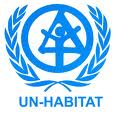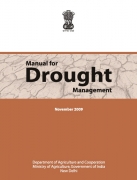Government Programmes
Water governance in the Narmada basin - A review paper from the Water Governance Project
Posted on 30 Apr, 2010 06:23 PMThe paper reviews contentious issues related to water governance in the Narmada river basin like the riparian rights of States over apportionment of the use of the waters for large dam-centered canal irrigation and hydro-electric power development and the later disputes around the appropriateness of this model of development given the tremendous environmental and social costs associated with it.
Rejuvenation of community toilets - A policy paper by UN-HABITAT and Government of Madhya Pradesh
Posted on 20 Apr, 2010 04:12 PM The policy paper examines the condition of community toilet in terms of its infrastructure, operation & maintenance, uses and payment of user charges. The paper is a result of a joint collaboration between Water for Asian Cities (WAC) Programme of UN-HABITAT and the Directorate of Urban Administration & Development, Government of Madhya Pradesh.
The policy paper examines the condition of community toilet in terms of its infrastructure, operation & maintenance, uses and payment of user charges. The paper is a result of a joint collaboration between Water for Asian Cities (WAC) Programme of UN-HABITAT and the Directorate of Urban Administration & Development, Government of Madhya Pradesh.
In Madhya Pradesh, WAC is supporting Asian Development Bank-financed project in cities of Bhopal, Gwalior, Indore and Jabalpur to improve and expand urban water and sanitation services. This study has been taken up to monitor implementation of the water and sanitation related targets.
Water Policy in India - A brief overview: A paper by Centre for Public Policy (IIM Bangalore)
Posted on 20 Apr, 2010 06:30 AMThis paper by the Centre for Public Policy (CPP) of the Indian Institute of Management (IIM) Bangalore adds to the debate on water policy in India, and provides a general overview of the main characteristics of irrigation development post-Independence and a review of its beneficial and adverse impacts. The problems that need to be addressed and measures needed to resolve them are highlighted. It recognizes the vital role of expansion of irrigation in transforming agriculture from one of near stagnation in the pre-independence period to one of sustained growth during the past five decades.
Manual on drought management by the National Institute Disaster Management and the Ministry of Agriculture (2009)
Posted on 15 Apr, 2010 04:13 PM This manual developed by the National Institute of Disaster Management (NIDM) presents a comprehensive approach to drought management and recommends measures that can be implemented for effective drought relief and mitigation. It brings together conceptual issues, institutional framework & operational details, and replaces the colonial famine codes written largely for dealing with hunger and starvation.
This manual developed by the National Institute of Disaster Management (NIDM) presents a comprehensive approach to drought management and recommends measures that can be implemented for effective drought relief and mitigation. It brings together conceptual issues, institutional framework & operational details, and replaces the colonial famine codes written largely for dealing with hunger and starvation.
It has been prepared with the objective of creating synergy between the various programmes being implemented to provide drought relief and mitigation by several levels of government.
The key issues covered in the manual are:
State-level utilization of funds and assets created through Ganga Action Plan - Report by Planning Commission for the Supreme Court (2009)
Posted on 15 Apr, 2010 03:41 PMThe report was prepared by the Water Resources Division, Planning Commission in response to a Supreme Court directive to verify whether the funds allocated to Ganga Action Plan (GAP) had been duly utilized by the States. The report is based on data obtained from Central Pollution Control Board (CPCB) and Ministry of Environment and Forests (MoEF) and field visits made to plant sites in Uttarakhand, Bihar and Uttar Pradesh.
Climate change threats to India's water resources and emerging policy responses - From the book 'Indian climate policy: Choices and challenges', by the Henry Stimson Centre.
Posted on 14 Apr, 2010 11:01 AMThis book published by Henry L. Stimson Centre highlights the richly diverse nature of India's views on climate change through its range of essays. These essays demonstrate and challenge the international perception of India as a monolithic actor with a single set of opinions and views in the climate change negotiations.
In this chapter, the author discusses the strengths and the weaknesses of India's climate policy in the context of the increasing threats that have been identified to the water resources in the country. The author states that India's climate policy is still in its emerging state and argues that though the policy does highlight many important areas related to climate change, it does not give adequate attention to a very crucial area of water management.
Making NREGA work better: A brief note by Public Interest Foundation
Posted on 13 Apr, 2010 01:16 PMThis note by the Public Interest Foundation (PIF) presents a proposal for making National Rural Employment Guarantee Act (NREGA) work better. It offers an alternative to the existing rigid framework for implementation and complex procedures leading to bureaucratization of the implementation process thereby causing uncalled-for delays. The note is a follow-up of its collaborative study with National Council for Applied Economic Research (NCAER) on “Evaluating Performance of NREGA” as well as the Comptroller and Auditor General's (CAG) performance report on implementation of NREGA.
Implementation of National Rural Employment Guarantee Scheme in West Bengal: A field report by the Right to Food Campaign
Posted on 13 Apr, 2010 12:48 PMThis report from the Right to Food Campaign traces the implementation of National Rural Employment Guarantee Scheme (NREGS) in West Bengal and points to the failure of the State in guaranteeing basic entitlements. It asserts that West Bengal is way behind other States, in implementation of this scheme, as per the data on NREGS website.
Joint Convergence Guidelines of the National Rural Employment Guarantee Act and Integrated Watershed Management Programme, issued by the Ministry of Rural Development (April 2009)
Posted on 09 Apr, 2010 09:36 PMThe Joint Convergence Guidelines issued by the Ministry of Rural Development (MoRD) in April 2009, attempts to bring about inter-sectoral convergence in the various watershed management programmes being implemented by the different departments under the MoRD. In particular, it deals with the convergence between the National Rural Employment Guarantee Act (NREGA) being implemented by the Department of Rural Development (DoRD) and the Integrated Watershed Management Programme (IWMP) being implemented by the Department of Land Resources (DoLR).
Dug well recharge scheme (2007-08 to 2009-10) - Revised guidelines with amendments to the scheme by the Central Ground Water Board
Posted on 24 Mar, 2010 03:46 AMThe State sector scheme on artificial recharge to groundwater through dug-wells is under implementation over the first three years of the (current) XI Plan Period (2007-12), in 1180 over-exploited, critical and semi-critical blocks/ talukas/ mandals in seven states of the hard-rock peninsular region of India, namely Andhra Pradesh, Maharashtra, Karnataka, Rajasthan, Tamil Nadu, Gujarat and Madhya Pradesh. The target beneficiary of the scheme are farmers who have privately owned wells, in their agricultural land.





